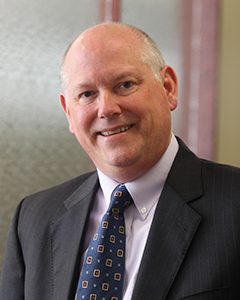New Survey Provides Worrying News About Retirement Savings

Now that we seem to be emerging from the COVID-19 crisis – emphasis on “seem” – it is time for the retirement savings industry to begin the long process of assessing where things stand.
According to a new consumer survey, things are standing a little wobbly, as you would probably expect.
The survey, conducted by Voya Financial and released on April 26, 2021, found that nearly half (47%) of individuals who took a loan or withdrawal from their retirement plan, a traditional lender, or investments due to COVID-19, “agree or strongly agree” that they withdrew more than they needed.
Pre-pandemic we consistently cautioned against taking a “loan” or making an early withdrawal from one’s retirement fund – not only because of the potential penalties involved, but also due to further loss of income through interest that could otherwise have been earned or, in the worst case, failure to “repay” those loans.
COVID-19, of course, brought unforeseen financial hardship to so many people and with it, new legislation loosening restrictions around accessing retirement savings.
Among its numerous provisions, the Coronavirus Aid, Relief, and Economic Security (CARES) Act of 2020 allowed individuals to access the lesser of $100,000 or 100% of their retirement savings without being subject to early withdrawal penalties, and allowing them to repay those funds over a three-year period without the monies being considered income by the Internal Revenue Service.
The CARES Act also temporarily waived the 10% early withdrawal penalty for coronavirus-related distributions (CRDs) made between January 1 and December 31, 2020, and exempted CRDs from the 20% mandatory withholding that usually applies to certain retirement plan distributions. (More details on the CARES Act can be found here.)
We encouraged those in need to consider taking those permissible loans/withdrawals but also urged caution when determining just how much to withdraw. Making such estimates at such an uncertain time like we faced for much of 2020 was understandably a challenge for many; hence the large number of survey respondents who have decided they took out more than was necessary.
Intriguingly, the survey also found that 68% of respondents said they are now in a better place financially because they took that loan/withdrawal.
One would certainly hope so; more money almost always means a bettering of one’s financial situation. But the survey also noted that 65% agreed that borrowing from their accounts has put them behind in saving for retirement. In addition, 59% said they wished that they had consulted a financial professional before making those withdrawals.
It is encouraging that the respondents – 1,005 adults interviewed on March 12-15 of this year – realize the inadvertent damage that they may have done to their retirement savings. The issue now, of course, is to ensure people take advantage of the CARES Act’s repayment provisions before further harm is done.
Also encouraging is the survey’s report that 38% of respondents are now reducing overall expenses, and 29% are re-evaluating their monthly budget. Nevertheless, one wishes those figures were higher.
The much-awaited so-called “return to normalcy” must include reverting back to prudent decisions when it comes to saving for retirement. Already in a well-reported state of crisis before COVID-19, we cannot allow the pandemic to claim another victim in the form of further-depleted retirement savings as we move ahead.
About the Author
